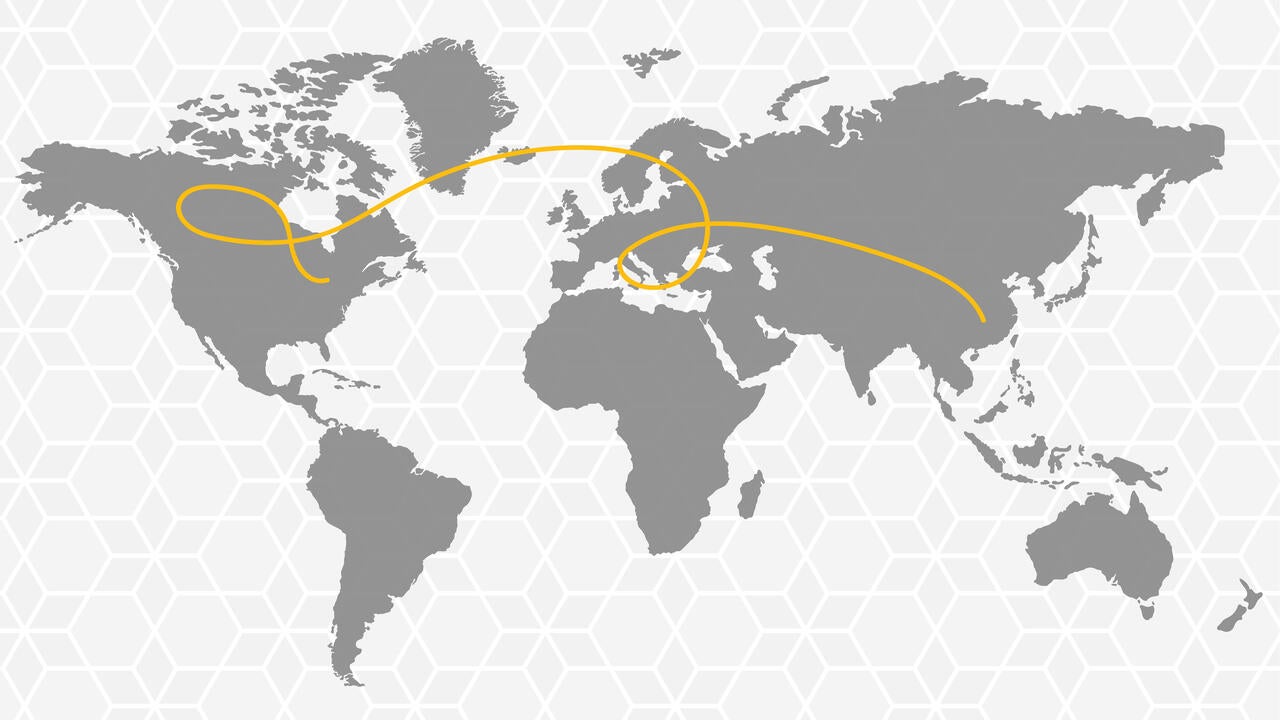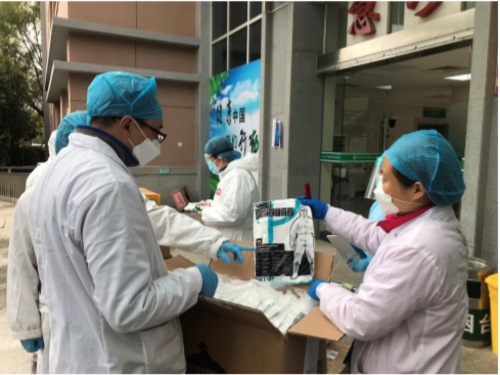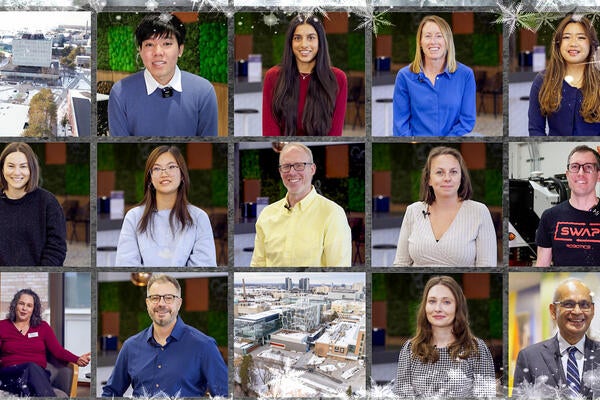
Help flows from Waterloo to Shanghai and back again
Waterloo's Shanghai alumni chapter supported Chinese health-care workers in January. As Canada copes with COVID-19, friends in Shanghai are returning the favour.

Waterloo's Shanghai alumni chapter supported Chinese health-care workers in January. As Canada copes with COVID-19, friends in Shanghai are returning the favour.
By Megan Vander Woude Office of AdvancementAs health officials in Wuhan, China confirmed thousands of COVID-19 cases, Michelle Zhou (BASc ’14) and John Luo (BMath ’07) wanted to help. In January 2020, Wuhan hospitals needed more medical supplies, and the number of COVID-19 cases were rising rapidly in the region. In the midst of the crisis, Michelle and John collaborated with other volunteers in the University of Waterloo’s Shanghai alumni chapter to organize a charity event that collected donations from their fellow alumni.
For Judy Peng (MASc ’97), another volunteer with the alumni chapter, the cause felt personal. She grew up in Wuhan.
“I have many family members and friends there suffering. I feel their pain vividly,” Peng says. “I had plans to travel to Wuhan for the Chinese New Year but had to cancel the trip at the last minute when the city was shutdown. Since then I have been watching the situation closely every single minute.”
And because Peng works in the healthcare industry, she was acutely aware of the impact a shortage of these medical supplies could have to workers and the general population.
Thanks to donations from 57 alumni, the Shanghai chapter purchased 200 masks for patients and health care workers at the Wuhan Union Hospital. When supplies grew more difficult to purchase, the chapter turned to Peng, who connected them with Fosun Foundation.

“Since I also participated in other similar donation events, I passed on information on validating supply channels, and needs from Wuhan or Hubei healthcare organizations,” Peng explains. “As things got more complex, it became extremely challenging to find good suppliers and I advised the core team to consider going through a third-party charity organization and recommended a local foundation.”
With Fosun Foundation’s broad network of purchasing resources, alumni were able to donate 200 protective suits to the Wuhan Union Hospital and the Wuhan Jinyintan Hospital.
It was a proud moment when the chapter received thank you letters from the hospitals.
“We felt relieved, proud and peaceful,” Peng says. “We wished that our very limited supplies would bring our warmth to the healthcare workers who are fighting and winning the battle.”
After seeing their impact during a global crisis, the Shanghai chapter is determined to continue giving back. They hope to organize more charity events in the future.
Two months later, with China gradually coming out of the crisis and Canada still facing the worst of it, assistance flowed in the opposite direction this week when friends of the University from Shanghai stepped up to donate 5,000 surgical masks to Grand River Hospital in Kitchener.
Diane Wang and her husband, Jack Zhang, who owns a 70-employee Shanghai company that distributes medical devices, offered help after forging strong friendships and partnerships with colleagues in Waterloo.
As an advisor in Toronto to a Silicon Valley venture capital company with deep roots in China, Wang works with engineering professor Chao Tan and others on research projects, and travels to Waterloo to help to identify promising startup technology companies.
“I’ve been there a lot and I have a very good impression of innovation at the University and in Waterloo Region,” she said. “I just wanted to do something for the community and my friends there.”

Read more
Redefining capstone learning by bringing students, faculty and community partners together to tackle real-world challenges

Read more
Here are the people and events behind some of this year’s most compelling Waterloo stories

Read more
A winter holiday message from President Vivek Goel
The University of Waterloo acknowledges that much of our work takes place on the traditional territory of the Neutral, Anishinaabeg, and Haudenosaunee peoples. Our main campus is situated on the Haldimand Tract, the land granted to the Six Nations that includes six miles on each side of the Grand River. Our active work toward reconciliation takes place across our campuses through research, learning, teaching, and community building, and is co-ordinated within the Office of Indigenous Relations.